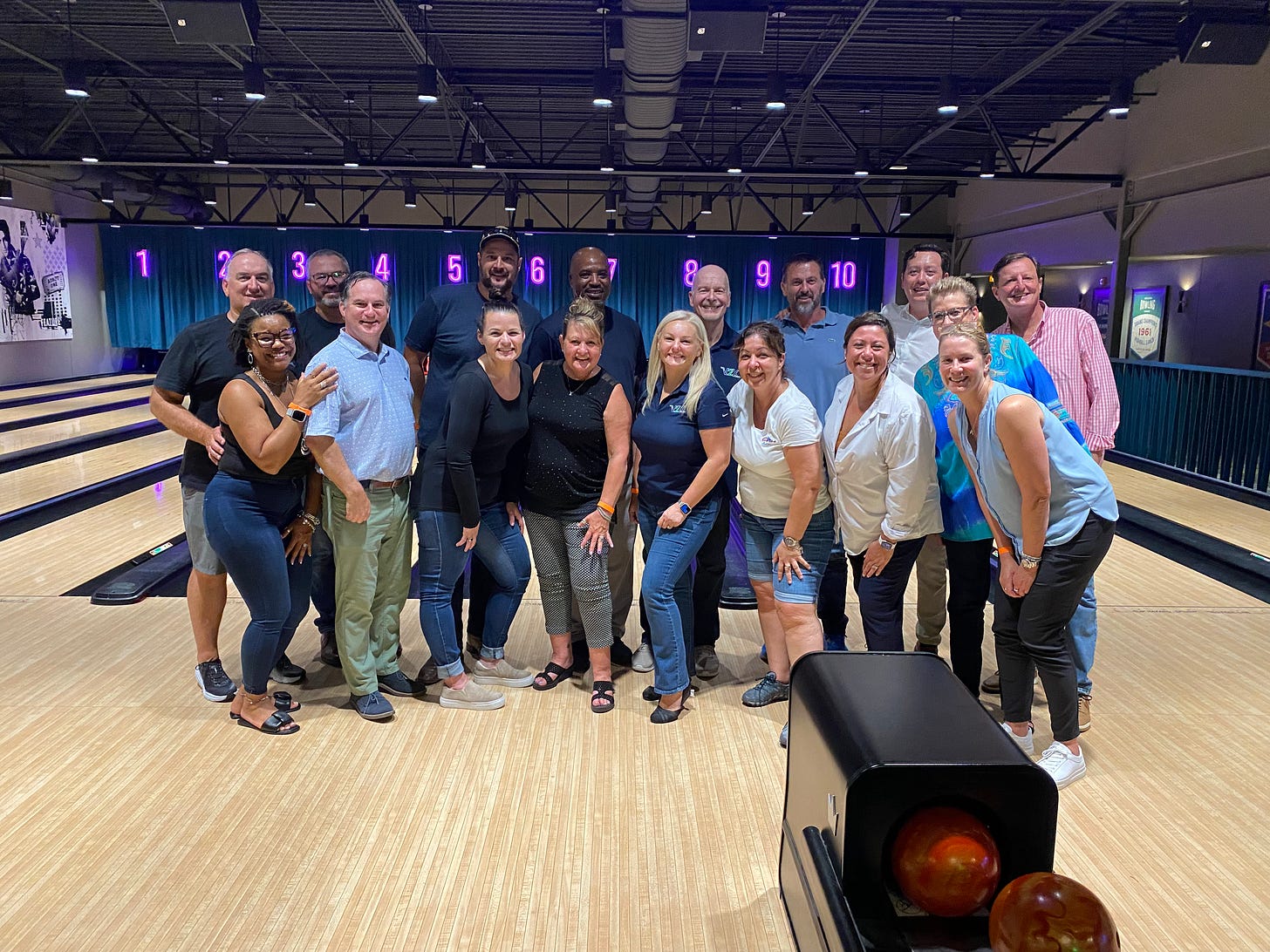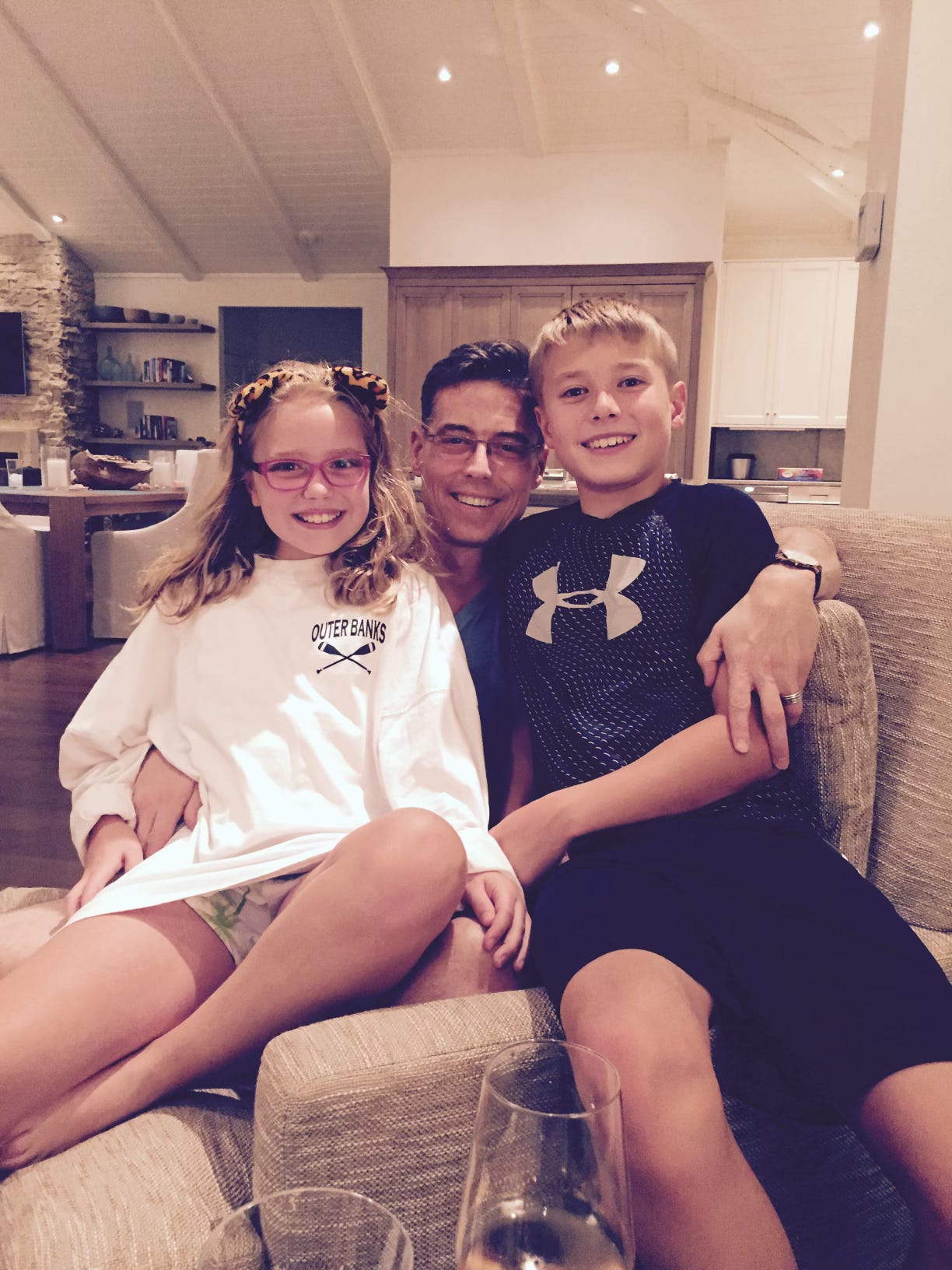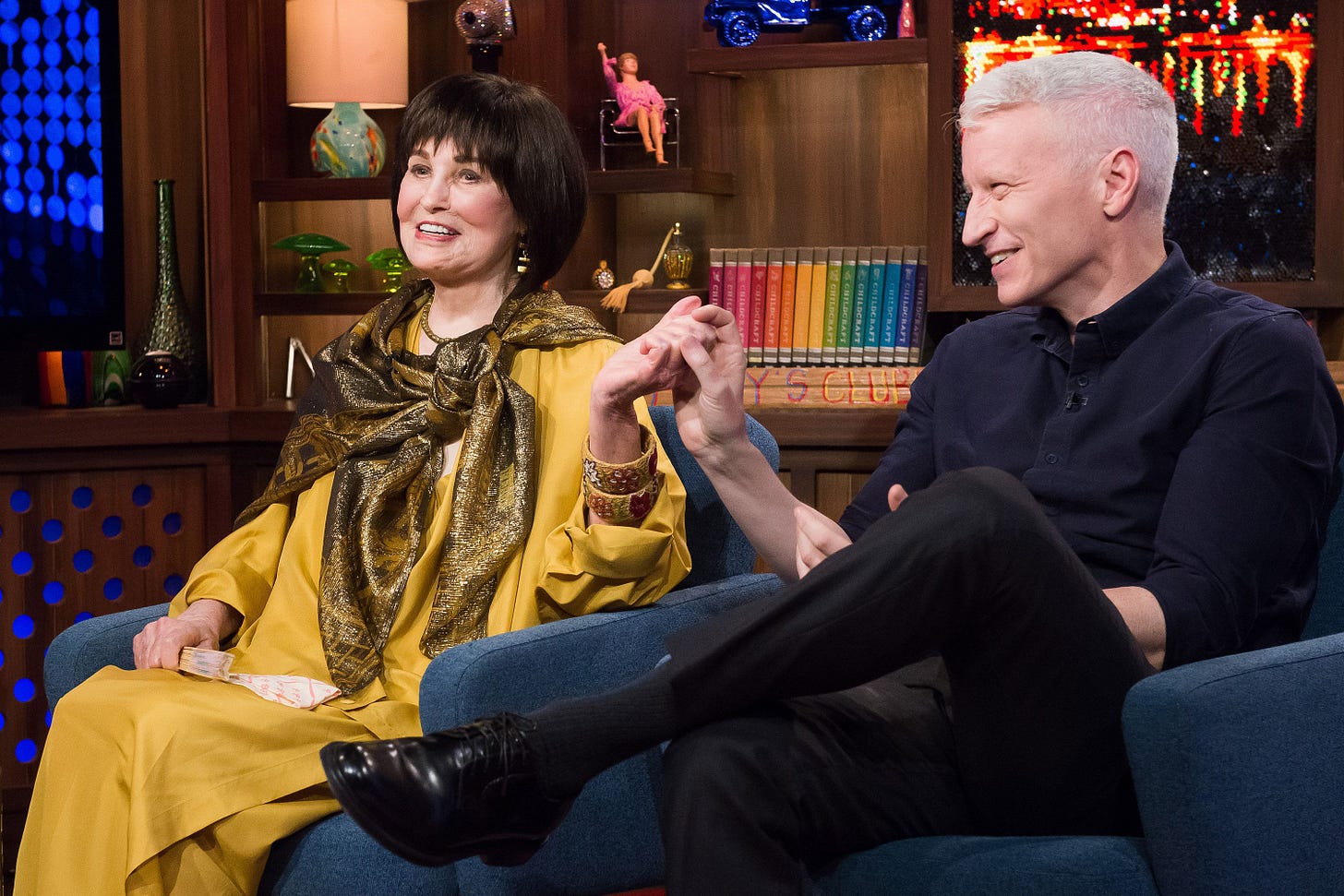#37: Moving on isn't leaving behind.
Evolving our relationships with those we have lost (part 1).
We’re going back to our grief basics this week, dear reader. But while this post may seem heavy at the start, I promise it ends on a high note! So grab your iced coffee, your iced tea, your gin & tonic — whatever is your comfort drink of choice this hot summer — and settle in to expanding our limits through hard conversations.
Free & paid subscribers receive the exact same weekly content in their inboxes every Saturday morning. (The newsletter, vulnerable, personal, embarrassing stories, book recommendations, and whatever gifs have made me giggle.)
Considering upgrading to help myself and my editor Leona dedicate more time to The Luminist and support our current non-profit of choice: Experience Camps for grieving kids.

“Moving on” may be one of the hardest parts of grief.
Try as we might, we can’t keep the clock from ticking, taking us further and further from our loved one’s last breath. We worry about losing the sharp memory of their smile, their laugh, their love. We shudder at the thought of boxing their possessions up. We honestly cannot imagine life without them… and yet it continues all around us.
Author Michael A. Singer posits in The Surrender Experiment that, prior to disruptive events in our lives, “Your whole being is headed in one direction physically, emotionally, and mentally; and that direction has all the momentum of your past and all the dreams for your future.”
When our lives abruptly change, it can take a long while to slow down the momentum of the previous trajectory — to shake loose our now outdated understanding of how things should be. It also takes a long time to grieve and release the dreams we had for our future…
But if we’re going to move forward from grief, this task is imperative. Otherwise we get stuck in the past.
Easier said than done.
I kept trying to figure out how to glue back together
the shattered pieces of our life in the early days after Mike’s death. But there was a gaping hole. A Mike-shaped hole. So hard as I tried to go back to “normal”, I constantly bumped up against the eerily quiet space where he was supposed to be: Mike walking in the door from his weekly business trip, Mike’s booming voice singing as he did the laundry, Mike’s warm hugs.
I kept being irrationally surprised when nothing in my life resumed its former shape. Like returning to your childhood bedroom and expecting everything to be in its place only to find your parents turned it into a home office.
While I don’t believe anything as trite as “time heals all wounds”, it does dissipate the momentum of your prior life. You find yourself at a standstill while you decide on a new direction, come up with new dreams. This moment is subtly terrifying in a way that is hard to explain. Because it’s not just your life riding on the way you move forward. How the memory and legacy of your loved one weaves into this new life also hangs in the balance.
For me, this meant finding a way for Mike to “live” in my life without holding onto (and being endlessly bereft about losing) the way things used to be.
Redefining Mike in my life.
Letting Mike’s place in my life evolve so the kids and I could “move on” without losing him.
In the CNN podcast series All There Is,
Anderson Cooper is working his way through the boxes and boxes that now contain what’s left of his mother Gloria Vanderbilt’s life. Months after her death — and decades after his father’s and brother’s deaths — Anderson strives to understand how to deal with his profound grief.
In episode five, Cooper is joined by filmmaker Kirsten Johnson, whose mother died of Alzheimer’s and whose father is currently declining from dementia. While their conversation centers on “anticipatory grief”, I couldn’t stop thinking about another idea they brought up — that it’s never too late to know someone better, even if they are gone.
Johnson explains, “Whether it's through someone who knew them, finding something they wrote, etc., it's never too late to get to know someone differently and even more deeply.
“We let the idea of death trap us, but we don't have to.”
Boom.
Death, as much as it is absolutely a real thing, is also a cultural construct. You can tell because we all have different ideas about what’s on the other side of death. If there are ways to communicate across the veil. If we will be reunited with our loved ones eventually, etc.
Before Mike died, I didn’t really bother to think about it. Death was an end. It sucked but what are we going to do about it?
However, when I was actually faced with death coming into my house, walking up my stairs, finding my husband, and taking him beyond a threshold I could not pass… I realized that my old understanding of death would trap me if I wasn’t careful.
If I hung onto the idea that there was nothing else — that he was gone, period — I’d set myself up for a miserable, lose-lose future. Because moving forward would mean moving farther away from him.
While writing this draft, out of the blue I received a touching email from a reader, a fellow widow, explaining this very dilemma. She has been looking for ways to not end up “stuck in sadness” and “afraid to move on and let go, even just a little.” She continues, “I want to lean into life and do all of the things I would have done if [my husband] were still here.”
I cried reading her message, remembering the feeling of hating the only two options I seemed to have.
Thank god for option C.
First came the incredible consolers in my life,
rushing in to fill me up with stories of Mike that I had never heard before. Adventures, triumphs, his rarely-captured goofiness. Their contributions to my vibrant life are indescribable and priceless.
I slowly realized that though I had lived with the man for 18 years, there was much I didn’t know… Death had erased his body, his voice, his hands, but it had opened my eyes.
When I had had the opportunity to speak to the man right in front of me, I hadn’t listened like I do now. I hadn’t heard him clearly, saw him clearly. Nor he, me. It wasn’t our fault. That’s just how life goes. It includes messy layers of humanity and stress and unspoken requests and hurts and the fact that there is never enough time… which hold us always slightly apart from each other.
As I’ve said before, though Mike is gone, I know him more truly and deeply now. Maybe not his wrinkles, nor scars, nor the Superman curl in his hair, but his heart. The part that matters. And the current relationship I have with Mike is exclusively soul-to-soul, nothing stuck in between.
In this new way of relating, the things Mike did leave now vibrate with meaning and messages. Mike’s old calendars capturing his days read not as milestone momentos but as pure devotion for our family. Mike’s keepsakes of his mother sing the song of his massive heart. His old photos from his study-aboard semesters are like flaming arrows straight from his adventurous spirit to ignite mine. And the conversations I remember — the ones my brain has decided to keep — dazzle with affection and appreciation and true love.
Mike and I speak all the time. Not in words like we used to. But in secret smiles and synchronistic signs. Books that are marked with his lilting handwriting and moments that Connor walks in wearing an old shirt of his. Luminist posts about legacy and kindness, priorities and rest, our mind-blowing kids.
In the way that he teaches all of you through me every single week.
This communing won’t end as long as I’m alive. It can’t get old or stale. Because every time I change or evolve or see something from a novel perspective, I get to go back to Mike and start a whole new conversation. I get to discover more of him through my new eyes.
No one told me that “moving on” could feel like this.
There’s a part two of this post coming next week.
But I think this is enough for one week. And by “enough”, I mean “a worldview-shattering realization!!”
As one last example, Cooper shares in the podcast, “My mom told me that toward the end of her life, her relationship with her aunt completely changed. Her aunt was dead… [for] long decades. But she saw her aunt differently. She saw her aunt through much more sympathetic eyes and it was from reading some old letters that I had found in storage that I showed to her… It was doing something new with somebody who had been dead for more than 50 years.”
Reflect with me:
Can you re-write a story from your past based on solely your memories? A bad breakup. A fall-out with a friend. A business transaction turned sour.
But instead of engaging with the memory as the version of you that took part in it, view it from your current vantage point. A little more mature, a little wiser, a little more compassionate. And way less caught up in the emotion of the moment.
The past can’t change but we can’t help but change. Which means there is endless opportunity to relate in a new way, see from a new perspective, learn a new insight of something or someone that now lives in the rear-view mirror.
But here’s the kicker: without regretting that we weren’t able to be more present, more loving, more connected, more whatever in the past.
Because if we had seen everything there was to see back then, we’d have nothing new to discover now.
In evolution,
If you resonated with this post and want more, check out these:
Post #2: Why I wouldn’t trade away the grief. While I would give anything to have my late husband back, my life is more vibrant, more meaningful, more miraculous thanks to the lessons of grief and loss.
Post #8: Then and now. How I’ve learned to let transformation unfold… rather than it being an uphill struggle.
Post #14: Things will be great again. Giving each other permission to believe in the future while honoring the pain of the present.
Post #23: Forgetting in order to remember. How the memory chisel clears our path forward.
Post #31: Not all progress feels like progress. Sometimes it feels like limbo.









This is a beautiful post!
So powerful, Sue. xo